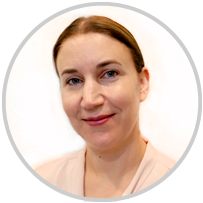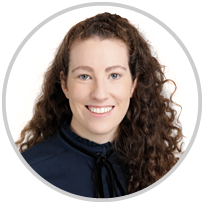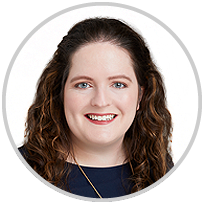OCD therapy
Structured treatment programs to help you break free from obsessive-compulsive disorder (OCD)
Most people experience intrusive thoughts or compulsions at some point in their lives. Some people also demonstrate personality and behavioural quirks around liking things to be done perfectly or in a certain way. However this does not mean that we all have OCD.
OCD has become a colloquial term for any repetitive behaviour, but for those who suffer from clinically diagnosed OCD it can be a highly stressful and debilitating disorder.
Click here to read more about our group therapy workshops.
So what is OCD?
OCD is a form of anxiety that develops when a person repeatedly experiences intrusive, distressing and unwanted thoughts, images or urges (obsessions). These obsessions are distressing and leave people feeling they cannot control or stop the thoughts from occurring.
While people with OCD often realise that their obsessional thoughts are irrational, they believe the only way to relieve their anxiety is to perform compulsive behaviours and rituals to prevent the outcomes that they fear. They attribute any relief from their anxiety to these compulsive behaviours – but the relief is short-lived, leaving OCD sufferers trapped in a cycle of needing to complete rituals to reduce their ongoing distress.
The more the rituals are performed, the more people feel the urge to perform them again next time they feel anxious or have distressing thoughts. As the frequency of the anxiety builds, rituals become extremely time consuming, and can get in the way of activities like school, hobbies, work, friendships and family activities.
Individuals with OCD will frequently avoid the situations that trigger their intrusive thoughts and rituals.
OCD symptoms
- Contamination fears like bodily fluids, germs, environmental contaminations, chemicals and dirt
- Fear of losing control and acting on impulses to harm oneself or others
- Fear of violent of horrific images
- Fear of being responsible for something terrible happening
- Fear of harming someone by not being careful enough
- Unwanted sexual thoughts or images
- Religious obsessions such as fear of offending God, or excessive concern with right and wrong
- Superstitious beliefs.
Some of the more common rituals and compulsions of adults with OCD include:
- Repetitive hand washing and cleaning in a certain way
- Repeatedly touching objects, a certain number of times or in a certain pattern
- Checking to see that appliances are off or doors are locked
- Checking that others were not harmed
- Mental compulsions (repeating a word, praying or replacing “bad” thoughts with “good” ones)
- Ordering or arranging objects in a particular way
- Counting to a particular number or repeating actions a certain number of times or to finish tasks on a “good” or “safe” number
- Rereading or rewriting
- Repeatedly seeking reassurance or confessing the content of their thoughts to others.
What therapies do we offer?
We offer individual and group cognitive behaviour therapy that includes exposure and response prevention (ERP). This form of therapy is considered the “gold standard” treatment for OCD. Exposure and response prevention involves gradually – and very carefully – facing the things that you avoid and that cause you distress, without completing your typical compulsions to reduce your anxiety. Doing this helps you to see that what you fear won’t actually happen, and that you are able to cope with any anxiety that you do experience. Typically any initial increase in anxiety caused by facing your fears quickly reduces.
We offer treatment programs designed for children, adolescents and adults.
Read more about OCD on our blog
Click here to read more about our group therapy program.
Who can assist me?

Rebecca Jamieson
BA (Hons), MPsych (Clinical) Senior Clinical Psychologist

Sarah Hollingworth
BA (Hons), MPsych (Clinical) Senior Clinical Psychologist

Dr Kim Eaton
BA (Hons), MPsych (Clinical), PhD Senior Clinical Psychologist

Contact
Ph: (08) 6143 4499
Fax: (08) 9200 5696
Monday to Thurs 8:30am - 7:30pm
Friday 8:30am - 4:30pm
Saturday 8:30am - 2:30pm
Locations
6 Outram Street
West Perth, 6005 WA
36 St Quentin Avenue
Claremont, 6010 WA
In the spirit of reconciliation, Lawson Clinical Psychology acknowledges the Traditional Custodians of country throughout Australia and their connections to land, sea and community. We pay our respect to their Elders past and present and extend that respect to all Aboriginal and Torres Strait Islander peoples today.
Lawson Clinical Psychology celebrates the extraordinary diversity of people’s bodies, ability, genders, sexualities and relationships that they represent.
Copyright © 2024 Lawson Clinical Psychology. All Rights Reserved. Privacy Policy.
































